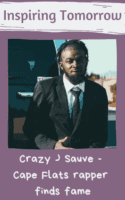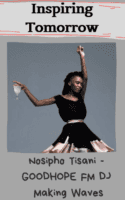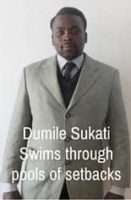“I no longer take disparaging insults to heart, because I know who I am and have already accepted myself the way I am. Self-love is the best thing you can give yourself.”
When a 19-year-old girl living with albinism, Vhutshilo Maiwashe, uttered those words, it was surely a declaration of self-acceptance, amazing confidence and self-power in action.
“At first I used to be angry when somebody teased me or said any word regarding the way I am. But now I’ve already forgiven them because some people can say things not because they want to hurt you, it’s just ignorance at play. They are not open-minded and are uneducated about albinism.”
However, the journey to self-acceptance, following insults from peers and some adults, has not been a smooth one for this young woman from Mashau Bodwe village near Elim in Limpopo.
She had to endure insults and gawking from peers on the school playground. They called her lixwete – in a tone that is an insult often used to address people living with albinism.
“It started a long time ago while I was still in primary school. Fellow learners would call me names. They put me in a situation where I felt so emotionally hurt. It was hard for me to cope.”
The continuous insults made her feel that she was quite different from other people. She started to question her identity.
“I asked myself if there was something wrong that my parents had done that made me to look the way I did. It wasn’t easy for me to carry on living around other people so I spent most time indoors at home.”
Vhutshilo has a word of comfort, encouragement and motivation for other people who might have to face discrimination in communities and work places because of a disability.
“What I can tell society and people living with albinism or any other disability, is that God never falls short on his creation. If you can’t see beauty in what God has created, pray for peace of mind, and not to change what God saw fit to make.”
She feels that people should understand that self-acceptance is the key to a happier and more fulfilled life.
“Never let disability limit you from reaching your goal. That is why I have the courage to name myself Ku Albino Queen, because I’m proud of being an albino queen.”
She gained self-confidence as she grew up, because she saw the kind of potential in herself that other people who didn’t have a disability didn’t have.
“It made me realise that the part of me that is a girl living with albinism was the plan of God for people to see that, even if I have albinism, I am able and can do what other people who are not disabled can’t.”
She also acknowledged the positive encouragement she got from those around her. She thanked her mother, Joyce Madala and siblings, Mulalo (big sister), Konanani (brother), and best friend, Rotshidzwa. She also credited her father figure, Rabelani Tshikhudo and the community of Mashau Bodwe village.
Today Vhutshilo oozes confidence. She chose to push aside all insults hurled at her by peers when she was at primary school, and focus on her life as a visionary of a young woman.
Vhutshilo completed her Grade 12 last year and she is studying towards a qualification in plant operations at Capricorn TVET College in Polokwane.
“In five years’ time, I want to see myself owning my own company and running a foundation for people living with disabilities, and getting my name up there in and beyond our country through hard, but good work.”
***
Tell us:What do you think about the people that attack people living with albinism?






